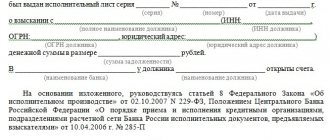About the cooperative
This is the same form of legal entity as LLC, JSC and other less popular partnerships.
By its nature, it is a form of self-employment of citizens who unite through their labor to achieve some common result. A cooperative, despite its name, is not obliged to engage only in production activities. Instead of authorized capital, it has a mutual fund, the minimum size of which is not established by law. The activities of production cooperatives are regulated by Art. 106.1-106.6 of the Civil Code of the Russian Federation and a separate Law. Members of a cooperative work for the cooperative without concluding employment contracts with it. In this case, you can additionally hire hired workers, but their number should not exceed 30% of the number of members. Members of the cooperative are not taken into account when calculating the average number of employees, which allows such an organization to apply the simplified tax system even when the number of shareholders exceeds 100 people.
Nuance: All members of the cooperative are reflected in the Unified State Register of Legal Entities. In each case of a change in the composition of shareholders, the Chairman of the cooperative must make changes to the Unified State Register of Legal Entities, which in itself takes time.
About membership
The cooperative must have a minimum of 5 members aged at least 16 years. Legal entities can also participate, but this must be expressly provided for in the charter.
A nuance: the first obvious difficulty in using a cooperative is where to recruit five members? Especially if we want to use it as an asset custodian. It is not common for a business to have 5 or more partners. Consequently, there are fewer opportunities to use a PC. Of course, you can include trusted persons (friends, children, other relatives), but in this case it is a guaranteed time bomb. Why? Please be patient and continue reading. Or watch:
About the mutual fund and share contributions
The cooperative has a mutual fund. Its size and the size of the share contribution are determined by the founders in the charter. The share contribution can be money, securities, other property, including property rights and other objects of civil rights. Estimation of share contribution up to 25 thousand rubles. carried out upon the formation of a cooperative by mutual agreement of the founders. Above 25 thousand rubles. - an independent appraiser.
A nuance: following the letter of the law, it can be assumed that all members of the cooperative can have the same share size; at most, in a mutual fund they can own several shares, multiples of the value established in the charter. In practice, everything is much more flexible, and the size of contributions to a mutual fund for specific founders can be set differently. How the founders will agree. Any contributions to a mutual fund are exempt from taxes from the receiving party (that is, the cooperative itself) on the basis of the benefits of pp. 3 p. 1 art. 251 Tax Code of the Russian Federation.
Another nuance: regardless of the size of the share owned, the shareholder has one vote at the general meeting of members. This is a fundamental difference from an LLC, where votes are proportional to shares in the authorized capital.
When might this come in handy? For example, to ensure ownership control. Regardless of the size of the contributions of the “investors” (let’s assume there are two), the initiators of a certain project (let’s say there are three of them) will each have one vote, that is, a majority. At the same time, the size of shares in the mutual fund of investors is proportional to their contribution. Everything is fair both financially and managerially.
Injustice and risk manifest themselves when trusted persons participate in the PC. Even the smallest share gives 1 vote. And if there are several such additional shareholders, significant management risks arise, which are quite difficult to minimize. In a cooperative, shareholders cannot enter into a corporate agreement capable of ensuring ownership control, as in an LLC, requiring uniform voting.
Issues of distribution of property shares
As a partial illustration, I would like to publish interesting extracts from the cassation ruling of the arbitration court (court of third instance) adopted at the end of April 2021. Decisions that relate specifically to the Azov region and Rostov region. A citizen filed a claim against the LLC in the arbitration court. The claims were made to oblige the plaintiff to be included in the number of participants in the company with a share in the authorized capital in the amount of 744 rubles, due to the fact that the plaintiff did not submit applications to withdraw from the shareholders. At the same time, the court found that the plaintiff’s money was transferred to her without her knowledge by the legal successor of the fishing collective farm, a certain limited liability company (LLC). Under such circumstances, the court actually found that: the reorganization, which was allegedly preceded by a general meeting, could become legal only under such circumstances when all participants in the collective farm took part in voting on the need to reorganize the fishing collective farm. At the same time, the court also found that there was a violation of the employee’s rights on the part of the LLC in that the property share was not transferred to him, and it upheld the claim. The higher, Fifteenth Arbitration Court of Appeal of the Rostov Region overturned the decision of the court of first instance. Indicating that the plaintiff chose an inappropriate method of protecting the violated right. On behalf of the plaintiff, the decision of the court of second instance (court of appeal) was appealed. The decision made by the court of second instance, the Federal Arbitration Court of the North Caucasus District (third instance court), was overturned. Having indicated that since the worker was a member of a fishing collective farm with a property share in the amount of 734 rubles, she has the right to take advantage of the protection of her violated property rights. Despite the fact that the property was transferred to the company, the plaintiff would have the right to a share in the authorized capital of the partnership if the defendant complied with the requirements of the law and transferred the property share to her. At the same time, the court also indicated that the plaintiff must choose a method of defense in which she must indicate in her application all the participants of the LLC as defendants. At the same time, the court of third instance, canceling all court decisions, also pointed to the fact that the court of first instance needs to figure out why and how the share of the authorized capital of the head of the LLC turned from 4.8 percent to 76.26 percent. It’s impossible to comment on the court’s decision, but I think it’s appropriate to speak out. In fact, such a decision established facts of violation of the law. How they are expressed, the court expressed its position. Now it is necessary for the prosecutor's office and the Ministry of Internal Affairs to express their position. In parallel with the arbitration processes, the persons involved in these events wrote complaints with the aim of initiating a criminal case to the Internal Affairs Directorate of the Rostov Region. In one of the verification materials, the head of the LLC explained that there were 430 property shares left at the time of the reorganization, and after the reorganization there were 44. Members of 44 property shares, taking into account the dismissed former workers of the fishing collective farm, who, among other things, sold their property shares, remained 44 they became members of the LLC. In his explanations, the director of the LLC testified that the register of associated members of the LLC was not kept. Which leads to only one thought: if there was no accounting of those who had property shares, how could they be bought up. Under such circumstances, the plaintiff who went to court actually proved that she did not sell her property share and did not take part in meetings on the reorganization of the fishing collective farm, like other former workers of the collective farm. The legal battle will continue in the near future. Time will tell how the new circumstances established by the Arbitration Court will be assessed by the Ministry of Internal Affairs and the prosecutor’s office. But the participants of the LLC, and even more so the manager of the agricultural enterprise, will have something to think about. It’s good if not at a logging site.
We recommend reading: How to buy a plot of land with maternity capital in 2021
However, those who knew how to count money also learned to hide them! Therefore, it is not so easy to collect money for a property share. Everyone has the right to receive a property share or recalculate it; it is regulated by Art. 12 of the Civil Code of the Russian Federation, which provides for such a method of protecting civil rights as restoring the situation that existed before the violation of the right.
On additional contributions to the property of the cooperative
If everything is clear with contributions to a mutual fund, then with additional contributions to property without increasing the authorized capital (mutual fund), which are possible in the usual LLCs and JSCs, not everything is simple. Let us recall that in addition to the contribution to it entailing a proportional increase in the authorized capital, a company participant can make a free contribution to the Company’s property, which the recipient is also exempt from taxation subject to a number of conditions (clause 3.7 and clause 11, clause 1, art. 251 Tax Code of the Russian Federation). These are excellent tools for tax-free financing in a group of companies.
There are two BUTs regarding the cooperative!
The first “But!”: contributions to property according to paragraphs. 3.7 clause 1 art. 251 of the Tax Code of the Russian Federation does not apply to cooperatives. The Tax Code provides this benefit only for companies and partnerships.
Second “But!” is that there is crystal clarity in the possibility of transferring property without tax consequences under paragraphs. 11 clause 1 art. 251 of the Tax Code of the Russian Federation no. Interpreting Letter dated September 25, 2007 No. 03-03-06/1/694, concerning the similarly formulated norm of paragraphs. 3 p. 1 art. 251 of the Tax Code of the Russian Federation, we believe that tax-free deposits under this benefit are possible. However, it should be remembered that the share of participation in the PC of the transferring or receiving party must be more than 50% and property (except money) cannot be transferred to anyone during the year.
Conclusion on the point: the lack of benefits for freer refinancing of cash flows in a group of companies again significantly limits the use of a PC in the role of an Asset Custodian. Funding through a mutual fund is not always a viable option. The large size of a mutual fund may unduly demonstrate the wealth of the company.
Features of the land share in 2021
- sell it for a certain price;
- exchange for another property;
- transfer free of charge by inheritance or under a gift agreement;
- register a share as collateral or contribute as authorized capital when registering participation in a cooperative;
- lease under an agreement or transfer into trust management to other persons.
- ordering from an engineer to develop a boundary diagram for the allotment;
- the engineer must provide the project to the other co-owners for information and accept my suggestions and comments. 30 calendar days are allotted for familiarization;
- if no objections arise within a month, the project is considered approved;
- then the land surveying project must be approved by the owner of the land share;
- the project must be approved by the local land committee, after which a cadastral plan of the plot is drawn up and entered into the register under a unique number;
- The last stage will be the registration of property rights in Rosreestr. To do this, it is necessary to submit a package of documentation; as a result, the owner receives a certificate of ownership of the land plot.
We recommend reading: Housing and communal services benefits for children of the Chaes
On the indivisible fund and the protection of the cooperative from the personal creditors of the shareholder
Property owned by the cooperative, by decision of its participants, can be transferred to the Indivisible Fund of the cooperative, the advantages of which are:
- Property constituting an indivisible fund cannot be foreclosed on for the personal debts of the participants (Clause 1, Article 11 of the Law);
- The property constituting the indivisible fund of the cooperative is not included in the shares of the members of the cooperative (ibid.);
- Collection of personal debts of a member of a cooperative cannot be applied to the indivisible fund of the cooperative (Article 13 of the Law);
- The share consists of the share contribution of a member of the cooperative and the corresponding part of the net assets of the cooperative (with the exception of the indivisible fund) (Article 9 of the Law);
- Collection of debts of a member of a cooperative cannot be applied to the indivisible funds of the cooperative, clause 5 of article 106.5 of the Civil Code of the Russian Federation and clause 3 of art. 74 Federal Law “On Enforcement Proceedings”.
In other words, a production cooperative allows its property to be isolated in such a way that it cannot be levied against the debts of its members. And this possibility is directly established by law.
This conclusion is confirmed by numerous judicial practices.
The possibility of forming an indivisible cooperative fund and the purposes for which it is formed must be provided for in the Charter.
In this case, a separate decision must be made on what specific property of the cooperative constitutes its indivisible fund. And this decision should be reflected in accounting.
The creation of an indivisible fund in a production cooperative is practically not regulated by the legislator. All issues related to its formation, size, list of property included in it fall within the exclusive competence of the general meeting. As a general rule, the decision on the creation and composition of an indivisible fund is made unanimously by all members of the cooperative. The charter may provide otherwise. At the same time, the list of assets that can constitute an indivisible fund is not established (money, buildings, structures, fixed assets, equipment, transport, shares in companies, etc.).
One of the tasks of the fund, in fact, is to ensure the stability of the cooperative. If a shareholder leaves the cooperative or is expelled, the property interests of the PC will be ensured.
The indivisible fund of a cooperative can be distributed among members of the cooperative only in the event of its liquidation, since the property of the cooperative remaining after satisfying the claims of creditors is subject to distribution among its members.
In this sense, the advantages of a PC in comparison with an LLC are clear. We “put” all significant assets into the Production Cooperative, decide to create an Indivisible Fund, and, in the event of personal claims against the owner/shareholder, it will be difficult to reach the property of the cooperative. For comparison: when foreclosure on a share in an LLC, creditors will receive the value of the owner’s share, taking into account the market value of the property. Creditors of a PC member will be paid the actual value of the share without taking into account the indivisible fund.
“Collection of debts of a member of a production cooperative (artel) cannot be applied to the indivisible funds of the production cooperative (artel).” p. 3 tbsp. 74 Federal Law of October 2, 2007 No. 229-FZ “On Enforcement Proceedings”
The same tool can be used to limit the entry of unwanted heirs of partners into the business by ensuring that they are paid only the value of the share, without taking into account the property that makes up the indivisible fund.
This is also where the devil lies. If there is an indivisible fund, the heirs have no way to demand fair compensation for the value of the assets, and they may be denied membership as shareholders.
A nuance: the cooperative, as an organization, is responsible for its business debts with its own property, including those that make up the indivisible fund. Thus, the use of a PC as an operating company entering into commercial relationships with suppliers or customers is a taboo that can completely kill the main idea - to protect property.
And one more nuance: if today you receive a claim from a creditor, and tomorrow you create a Production Cooperative, transferring all assets to it, then such a transaction will most likely be declared invalid. Since such events have no business purpose other than to cause damage to the creditor by hiding the property from foreclosure.
Too many “Buts!” for widespread use of this form.
Possibility to take back a property share that belongs to me
Unfortunately, this Decree did not provide for exactly how the issue of reproduction of leased property should be resolved. Therefore, the Ministry of Agrarian Policy of Ukraine recommended that tenants of property reproduce it in accordance with the previously stated principle: rent should include two components, one of which is used as a source of such reproduction.
One of the most pressing and important unresolved issues of property relations remained the issue of reproduction of property. The transfer of property for rent, which is in common shared ownership, is essentially an operating lease, according to which, at the end of the lease period, the property remains the property of the lessors, which means that, in accordance with current legislation, they must reproduce the property. But this current rule cannot be implemented in this case, because the owners of property shares are objectively unable to charge depreciation on fixed assets and carry out their current and major repairs. Therefore, only the tenant can reproduce fixed assets as part of property shares. But according to current legislation, he does not have the right to charge depreciation on fixed assets under operating lease. In 2021, all private enterprises that rented property shares, except for agricultural production cooperatives, did so. It was for this reason that the property leased to them remained without a source of reproduction. Thanks to the “disappearance” of the expense item “Depreciation of fixed assets,” the tenants received unearned profit, which became their property, since its source was, in fact, the peasants’ funds in the form of their irreproducible property.
We recommend reading: How to get category D for a tractor if you have all the others
As a conclusion
A production cooperative is, of course, an excellent tool for solving an important number of problems of a business and its owners, treating and preventing their business ailments. However, like any medicine, it has a number of contraindications and a list of cases of use “with caution”.
The conditions mentioned above are more than enough to understand the need to make an informed decision regarding the use of a production cooperative for storing assets.
Just the question of what the owners will contribute as their share for such labor participation can confuse you. In other words, the pill is powerful, but not magical and “available only with a doctor’s prescription.”







